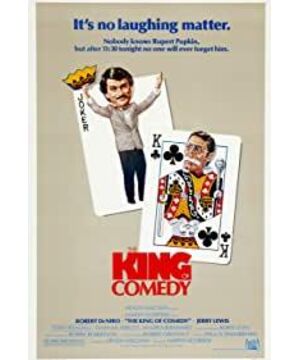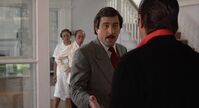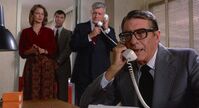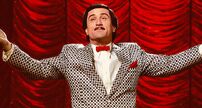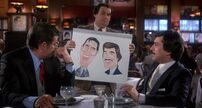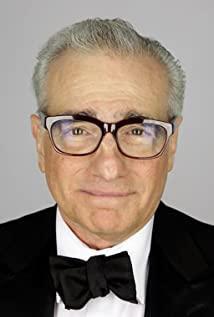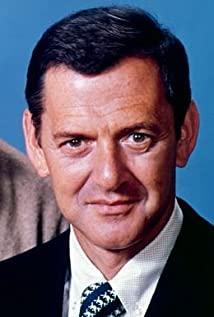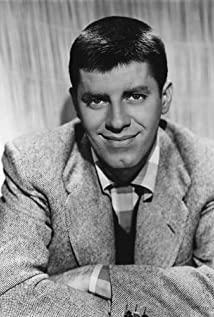The movie master Martin Scorsese’s "The King of Comedy" and his predecessor, "Taxi Driver" are both stories about the unknown little character "surpassing fame": it's just that the latter is a taxi driver who lost sleep all night and fell in love. Wanting to assassinate the presidential candidate to dispatch boredom, but accidentally rescued a child prostitute, and finally became a "hero" in the eyes of the media; the former is a grass-roots comedian who is eager to be famous, who knows that he has repeatedly run into walls and is forced to be helpless. He kidnapped the famous mouth he admired, used it as a threat to appear on the TV show grandiosely, and performed an impromptu talk show for five minutes. After winning full cheers, he went to jail...
In terms of style, "Taxi Driver" is repressive and heavy, while "The King of Comedy" is absurd and ridiculous.
Acting god Robert De Niro this time plays a little talented but neurotic and daydreaming second-hand middle-aged man Rupp, who admires the talk show celebrity Jerry, but the other side is indifferent to him. , I have a crush on a barmaid, but they find him pitiful and ridiculous, with a dream of becoming famous, but no way to achieve it. So, Rupp made a virtual studio at home, and kept talking to himself against a wall full of audiences; fantasizing talk show celebrities begged him to come on the show with a low voice; even with a secret love bar girl, shamelessly Visit Mingzui’s country house...
He just wanted to be famous, with a kind of stubborn stubbornness to swear to achieve his goals; the bar girl he secretly admired, at first looked down on him, and later heard that he was a "good friend" with the well-known talk show, and he looked at him differently; The crazy female fan he planned and carried out the kidnapping together is simply the American version of Yang Lijuan. Men are eager for success, women only like successful men. In the end, men only want to be successful, so Rupp used his life to shout during the five minutes of the performance: "I would rather be the king of the night than a boring egg for a lifetime."
Martin Scorsese, known as the "movie sociologist", photographed the social psychosis of entertainment first and even entertainment to death in the consumer era: the "king of comedy" Rupp yearns for represents the pursuit of life His ultimate goal, when "kidnapping" evolved into a performance art, and "TV" became a medium of self-realization. In the end, he became famous overnight and was arrested and imprisoned. Later, he became the focus of media attention. After the prison, it was even more red and purple. And he finally became the new king of comedy in this weird and absurd way.
However, this is the envy of everyone, and the king of comedy that everyone aspires to be must be a perfect model? The film took a long time to describe the talk show celebrity Jerry who was worshipped by Rupp and chased wildly by female fans but never smiled after he stepped out of the stage. He will always be alone in the street. Walking, a person lives in an empty villa, only servants, no relatives, only silence, no sound, the real heights are very cold.
But Rupu didn't understand at all. He just wanted to imitate Jerry, and even more wanted to be him, even if he was crushed.
In the end, Rupp finally got on TV and packed all the misfortunes of his childhood and the various sadness of his fame into a joke, and couldn’t help telling the truth: “I came to the stage because I kidnapped Jerry (Famous Mouth). The name of the audience)”, I didn’t expect the audience in the audience to be overjoyed. Here, reality and absurdity, tragedy and comedy make people indistinguishable...including the unexpected ending: he became famous after he was in prison, and he became the king of a new generation of comedy when he was released. What is this? The real situation, or Rupp's wishful thinking?
In my opinion, it doesn't matter.
What’s important is that Rupp’s fame mentality to gamble on life verifies the spirit of "entertainment to death" criticized by American sociologist Neil Bozeman: to die for entertainment, but to entertain the end. Everyone has become a walking corpse.
Jerry’s today may be Rupu’s tomorrow.
View more about The King of Comedy reviews


